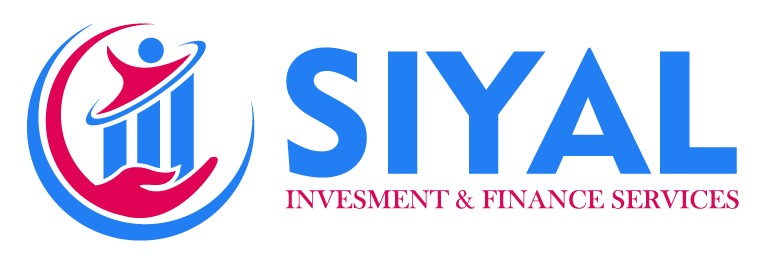How to Become an Insurance Agent: A Step-by-Step Guide
Becoming an insurance agent is a lucrative and rewarding career choice. The insurance industry is constantly growing, providing financial protection to individuals, businesses, and families. Whether you want to sell life insurance, health insurance, auto insurance, or business insurance, this profession offers flexibility, job security, and a potential for high earnings. If you’re wondering how to become an insurance agent, this guide will walk you through the necessary steps, qualifications, and skills required for success in the industry.
Step 1: Understand the Role of an Insurance Agent
Before diving into the process of becoming an insurance agent, it’s crucial to understand what the job entails. Insurance agents are responsible for:
Assessing clients' needs and recommending suitable insurance policies.
Explaining policy details, benefits, and coverage limits.
Assisting clients in filing claims.
Building relationships with customers to ensure long-term service.
Keeping up with industry regulations and changes.
There are two main types of insurance agents:
Captive Insurance Agents – Work exclusively for one insurance company and sell only their products.
Independent Insurance Agents – Work with multiple insurance companies and offer a variety of policies to clients.
Understanding these roles will help you determine which path suits your career goals.
Step 2: Meet the Educational Requirements
Most insurance companies require agents to have at least a high school diploma or equivalent. However, obtaining a bachelor’s degree in finance, business, marketing, or a related field can provide a competitive edge. Many successful insurance agents have backgrounds in:
Business Administration
Marketing
Finance
Economics
Some agencies may prefer candidates with a college degree, especially in competitive markets.
Step 3: Obtain the Necessary Licensing
Insurance agents must be licensed to sell insurance policies. The licensing requirements vary by state and country, but the general steps include:
- Choose Your Insurance Specialization
Decide whether you want to sell:
Life and health insurance
Property and casualty insurance
Auto insurance
Business and commercial insurance
Each type may require separate licensing exams.
- Complete a Pre-Licensing Course
Most states require prospective agents to complete a pre-licensing course before taking the licensing exam. These courses cover topics such as:
Insurance policies and contracts
Risk management
State insurance laws and regulations
Ethics and professional conduct
- Pass the Insurance Licensing Exam
Once you complete the pre-licensing education, you must pass a state licensing exam. The test format typically includes:
Multiple-choice questions
State-specific insurance laws
General insurance principles
The passing score and cost of the exam vary by state. You can prepare by taking practice exams and enrolling in exam prep courses.
- Submit a Background Check and Application
Most states require fingerprinting and a background check to ensure candidates meet ethical standards. Once you pass the exam and background check, submit your application and pay the licensing fee.
Step 4: Gain Industry Experience
While not always mandatory, gaining hands-on experience in the insurance industry can boost your chances of success. Here’s how:
Internships: Many insurance companies offer internship programs to help aspiring agents learn about the industry.
Entry-Level Positions: Consider working as a customer service representative or under a senior agent to gain experience.
Mentorship Programs: Learning from experienced professionals can provide insights into the best sales strategies and client management.
Step 5: Get Appointed by an Insurance Company
After obtaining your license, you need to get appointed by an insurance company to sell their policies. The process includes:
Applying to work for an insurance carrier or becoming an independent agent.
Signing a contract with an insurance provider.
Completing additional company-specific training.
Captive agents typically receive support from their parent company, while independent agents need to build relationships with multiple insurance carriers.
Step 6: Develop Essential Skills
Being an insurance agent requires a mix of technical and soft skills. To succeed in this profession, focus on developing the following:
- Sales and Communication Skills
Ability to explain policies clearly
Strong persuasion and negotiation tactics
Active listening to understand client needs
- Customer Service Skills
Building trust with clients
Handling inquiries professionally
Following up with existing customers
- Marketing and Networking Skills
Using social media and digital marketing to generate leads
Attending industry events to build connections
Referring satisfied clients to gain more business
Step 7: Continue Education and Stay Updated
The insurance industry is dynamic, with evolving policies, regulations, and market trends. To stay competitive:
Take continuing education courses.
Earn professional certifications such as:
Chartered Life Underwriter (CLU)
Certified Insurance Counselor (CIC)
Chartered Property Casualty Underwriter (CPCU)
Stay updated on industry news and legal changes.
Many states require insurance agents to renew their licenses periodically by completing continuing education credits.
Step 8: Consider Opening Your Own Insurance Agency
Once you gain experience, you may want to start your own insurance agency. Steps to achieve this include:
Creating a business plan.
Obtaining a business license and registering your agency.
Partnering with multiple insurance carriers.
Hiring staff and investing in marketing strategies.
Owning an agency provides greater earning potential but requires strong business management skills.
Conclusion
Becoming an insurance agent is a step-by-step process that requires education, licensing, industry experience, and ongoing skill development. This career offers excellent job stability, flexibility, and income potential. Whether you work as a captive agent or start your own agency, the key to success lies in excellent customer service, strong sales techniques, and staying updated with industry changes. If you’re passionate about helping others and eager to grow in a thriving industry, a career as an insurance agent could be the perfect fit for you.
